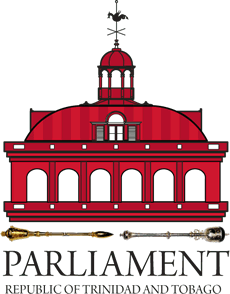The Constitution provides that a person is qualified for membership in the Senate if he is a citizen of Trinidad and Tobago of the age of twenty-five years or upwards. There is provision for thirty-one Senators all appointed by the President: sixteen on the advice of the Prime Minister; six on the advice of the Leader of the Opposition; and nine (Independent) in the discretion of the President from outstanding persons from economic, social or community organizations and other major fields of endeavour.
Senators vacate office upon a dissolution of Parliament and their appointments can be revoked by the President acting in his own discretion with respect to the nine independent Senators or on the advice of the Prime Minister, the leader of the Opposition, as the case may be.
Ideally, the Senate seeks to represent and take into account the views and interests of those elements of society which may be insufficiently reflected in the composition of the elected House. It has been recognized that it makes salutary contributions to parliamentary debates. Generally, Bills can be introduced in the Senate, however, certain Bills defined as “Money Bills” cannot be introduced in the Senate ahead of the House of Representatives.
The presiding officer is the President of the Senate.


